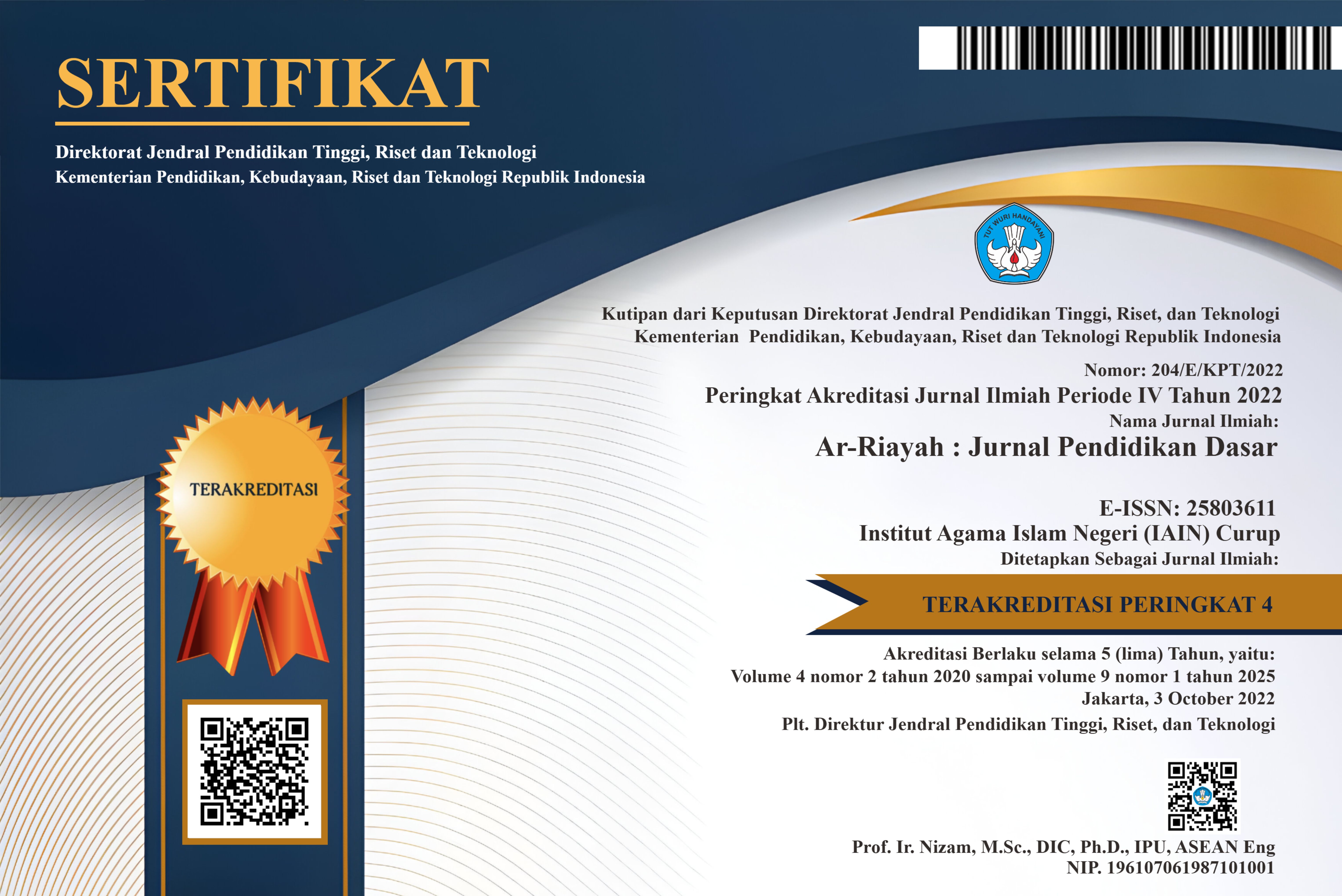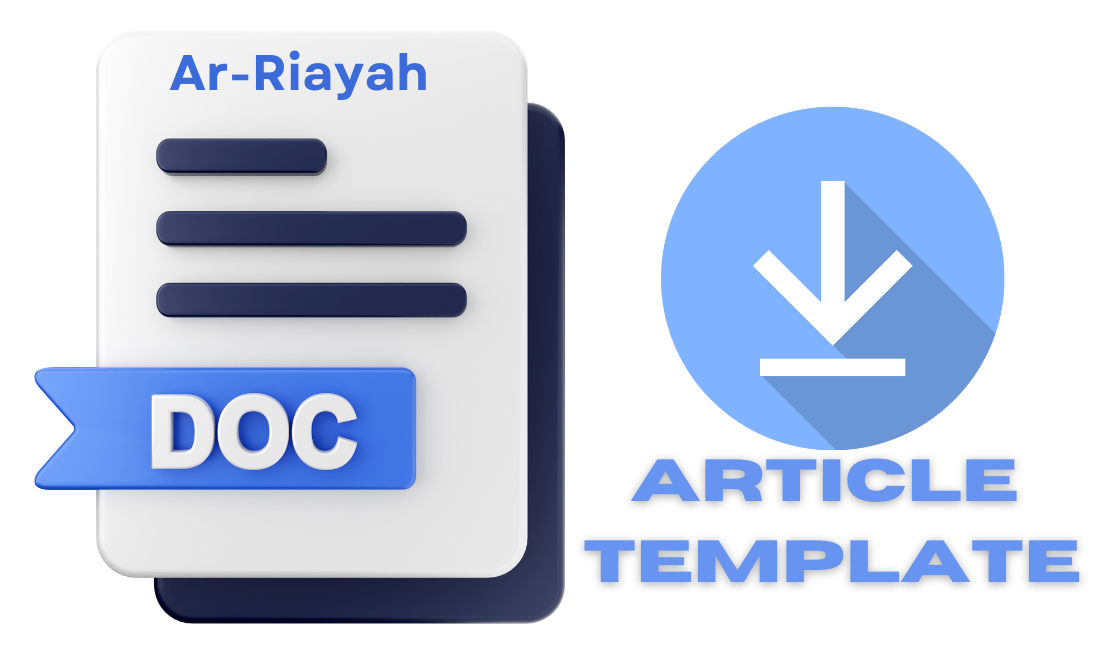Pendidikan Karakter Pada Anak Sekolah Dasar Di Era Digital
DOI:
https://doi.org/10.29240/jpd.v2i1.439Keywords:
Character Education, Primary School Children, Digital EraAbstract
Downloads
References
Abeng Eddy Adriansyah Dkk. 2015. Jendela Keluarga. Bandung: MQS Publishing, Cet III.
Departemen Agama RI. 2000. Al-Qur’an dan Terjemahnya. Jakarta: PT. Intermasa.
Departemen Pendidikan Nasional. 2003. Undang-Undang Republik Indonesia No. 20 Tahun 2003 Tentang Sistem Pendidikan Nasional. Jakarta: Depdiknas.
Daryanto, Darmiatun Suryatri. 2013. Implementasi Pendidikan Karakter di Sekolah. Yogyakarta: Gava Media.
Peraturan Menteri Pendidikan dan Kebudayaan Republik Indonesia Nomor 23 Tahun 2015. Jakarta: Permendikbud.
Peraturan Presiden No 87 Pasal 2 Tahun 2017, Penguatan Pendidikan Karakter, (http://www.setkab.go.id/wp-content/upload/2017/09/Perpres No 87 tahun 2017, ( Diakses 20 april 2017)
Saiful Bahri. Implementasi Pendidikan Karakter dalam Mengatasi Krisis Moral di Sekolah , 2015, TA’ALLUM Vol 03. No 01, juni 2015
Salman Hasibuan. 2015. Budaya Media dan Partisipasi Anak di Era digital, Proceeding of International Post-Graduate Conference. Surabaya: Program Studi S2 dan Komunikasi Universitas Airlangga.
Sukiman, dkk. 2016. Seri Pendidikan Orang Tua: Mendidik Anak di Era Digital. Jakarta: Kementerian Pendidikan dan Kebudayaan.
Yulia Palupi, 2015. Digital Parenting Sebagai Wahana Terapi untuk Menyeimbangkan Dunia Digital dengan Dunia Nyata Bagi Anak, Yogyakarta: Seminar Nasional Universitas PGRI Yogyakarta tahun 2015.
Downloads
Published
How to Cite
Issue
Section
Citation Check
License
Authors who publish with Ar-Riayah: Jurnal Pendidikan Dasar agree to the following terms:
Authors retain copyright and grant the journal right of first publication with the work simultaneously licensed under a Creative Commons Attribution-NonCommercial-ShareAlike 4.0 International License (CC BY-NC-SA 4.0) that allows others to share the work with an acknowledgment of the work's authorship and initial publication in this journal.
Authors are able to enter into separate, additional contractual arrangements for the non-exclusive distribution of the journal's published version of the work (e.g., post it to an institutional repository or publish it in a book), with an acknowledgment of its initial publication in this journal.
- Authors are permitted and encouraged to post their work online (e.g., in institutional repositories or on their website) prior to and during the submission process, as it can lead to productive exchanges, as well as earlier and greater citation of published work (See The Effect of Open Access).











